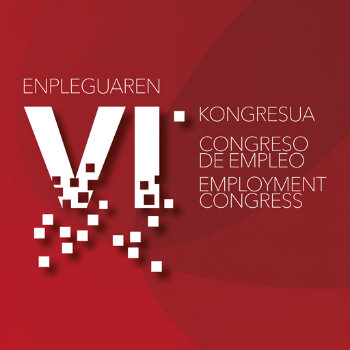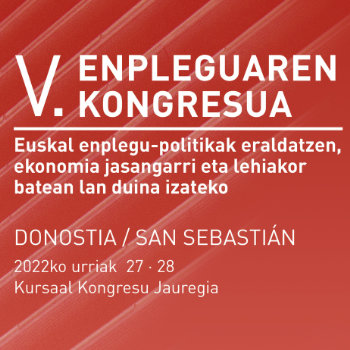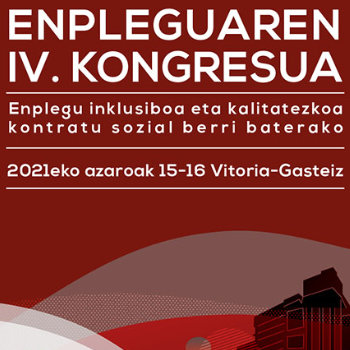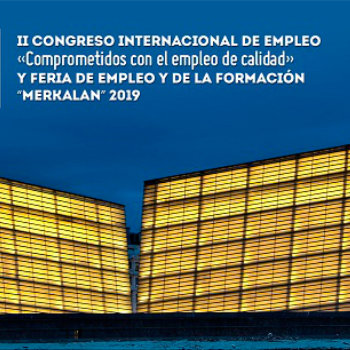VII Employment Congress 2024


The 13th legislature of the Basque Government began just a few weeks ago, and did so with a programme of government for the next four years in which it is committed to quality employment, including measures to boost employment and improve its quality.
The Department of Economics, Work and Employment proposes to frame this political commitment in debate and shared reflection, for which we will have an opportunity at this year's Employment Congress, with the social, professional, political and academic agents concerned. The congress will enable us to move forward on public policy initiatives intended for the changes under way to help to create better jobs for all. Changes arising from the technological, climate and demographic transitions, and those caused by the growing polarisation of employment and the readjustment of power between capital and labour driven by automation and artificial intelligence (AI).
The Basque Employment Strategy 2030, the employment act, Law 15/2023, and the White Paper on Employment in the Basque Country (2023) are tools created during the last legislature and all of them include, one way or another, the commitment to foster the creation of "good jobs" for the whole population, regardless of their educational level and skills. A commitment that concerns society as a whole: political leaders, local and provincial institutions, businesses, social stakeholders, third-sector organisations, training centres and universities, as shown in the signing of the Social Pact for Jobs by over 100 stakeholders throughout the Basque Country.
The ILO defines decent work as that which provides opportunities of doing work that is productive and earns a decent income, job security and social protection for the whole family, better expectations of personal development and integration in society, freedom to express opinions, organise and take part in decisions that affect one's life, and equal opportunities and treatment for all women and men. A concept that lies behind the definition of decent work included in article 2 of the employment act, Law 15/2023, which will be fully implemented in this legislature.
At this 7th Employment Congress, to be held on 24th October in Vitoria-Gasteiz, we will explore the meaning of good jobs, good businesses and their impact on quality of life, in order to extract learnings that allow us to devise public policy to facilitate the changes necessary to create quality jobs. Public policy to support the economic, innovation and training fabric. To build a future in which everybody has the chance of a job in healthy, safe conditions, one that allows workers to fully pursue their plans in life, in short a decent, quality, inclusive job that meets the needs of workers, businesses and the great challenges we face.
I invite you to take part in this exciting task, to build between all of us a competitive, cohesive Basque Country.
Mikel Torres Lorenzo
Second Deputy First Minister and Minister of Economy, Labour and Employment
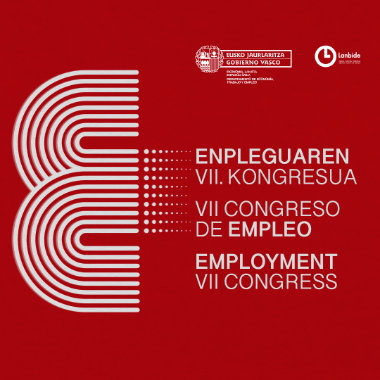 This 7th Employment Congress aims to be a place for reflection and knowledge, a place to devise evidence-based public employment policy that serves to meet the great challenges we face as a global society.
This 7th Employment Congress aims to be a place for reflection and knowledge, a place to devise evidence-based public employment policy that serves to meet the great challenges we face as a global society.
The Congress will last one day, with morning and afternoon sessions divided into three blocks, each of them with a presentation and a round table for debate.
The first block will begin with the keynote presentation by the OECD of the study conducted by the organisation of the concept of Job Quality and the three dimensions this involves: income, aspects of financial security related to the risk of losing the job and the economic cost of this for workers, and the quality of the work environment in non-economic terms (nature and content of the job, organisation of working time, workplace relations and so on).
The second block will concentrate on the impact of technology on job quality, opportunities, threats and the uncertainties raised by the rapid advance of technology, with a particular focus on the impact of artificial intelligence.
The third and final block will deal with what it means to apply the concept of good jobs in different economic sectors that account for a large proportion of the working population.
To end the day we will have a final presentation of proposals and the closing event.
As we do every year, we will have experts or recognised standing in the field of employment and economics, from the academic and professional spheres.
KEYNOTE ADDRESS
How to train for an unknown future
Within the framework of the European Year of Skills 2023: do qualification, retraining and requalification guarantee decent employment in a society undergoing constant productive and social change?
Knowledge and skills are necessary conditions to find work, but is it possible or even valid for the training available to adapt strictly to businesses' demand for professional profiles?
Considering that companies are immersed in and subject to market trends, innovations and the necessary product-service differentiation demanded by the dynamics of economic competition, how are public policy on training and the vocational and employment training system to respond to the accelerating obsolescence of vocational qualifications? And, especially true in the context of digital/technological and climate/energy change and in the light of the demographic imperative in terms of replacement and managing age in the workforce?
From an ethical and moral point of view, must careers guidance and therefore vocational training be aimed exclusively at meeting the demand for employees that creates jobs? What about free choice of career or with other vocational interests when these do not match job opportunities?
TALK
The Vocational Training Act and the Employment Act: implementation and complementarity
The structuring and complementarity in the systems of vocational training (educational) and training on the job (employment). State of regulatory development or implementation of new legislation in the field of vocational training and employment. Effects or interactions between vocational training legislation and the training for employment on offer (now training in work under the new Employment Act).
ROUND TABLE
Vocational skills and decent employment
On the basis of the thoughts in the previous talk, the aim is firstly to encourage debate from the standpoint of the Basque Vocational Training and Employment System about the practical impact of the new legislation, and secondly to undertake an analysis of the match between vocational qualifications and skills within the European framework, particularly as they affect training that constantly adapts to employment demand.
The round table will also discuss the usefulness or effectiveness of training processes in finding, keeping or improving jobs, with case studies of successful training and employment programmes for medium and highly-qualified people, for low-qualified people, for people in employment and within the university sphere.
TALK
Complementarity between policies on the labour market and social investment to train vulnerable groups
Presenting research analysing and proposing transferable, scalable guidelines based on innovative experiences with good practice in strategies, methodologies and programmes of action for people to be dealt with on a priority basis: marginalised or at risk of exclusion, disabled, young, over 50, low-qualified, women, long-term unemployed and so on.
ROUND TABLE
Innovative programmes and proven success aimed at people to be dealt with on a priority basis
Presenting actual experiences of successful intervention specialising in the different population groups who are a priority.
TALK
Innovation in Public Employment Services from the point of view of demand (people) and supply (services to companies)
A dual focus, firstly going into the "client company" perspective, giving visibility to and fostering the orientation of public employment services towards companies' different needs, beyond the classical conception and attempting to overcome barriers to a new relational paradigm. Secondly, going into new models of attention to job seekers at Public Employment Services, as citizens with rights and as clients, and at the same time jointly responsible for their own path to employment or better employment.
ROUND TABLE
Good practice and innovation in the range of public employment services
The aim is to show good practices in public employment services in the way they provide their range of employment services, with the exception of training as this service is dealt with specifically in the first day of the congress.
TALK
Technological and digital innovation in the management and implementation of employment policy
AI, the ethical algorithm, the digitalisation and automation of processes and services, personalisation. Ethical and rights issues in applying technological advances to employment services and policy.
ROUND TABLE
Common tools of the employment system to optimise the results and integration of networks of collaboration
Innovative experiences in preparing and using the different tools and supporting devices for optimal provision of the range of employment services.
ROUND TABLE
Conclusions of the VI Employment Congress
Social and institutional stakeholders' assessment of the contributions by speakers and round table participants and their view of the advances in employment policy and outstanding challenges.
24/10/2024: "Good jobs, good businesses, quality of life"
Host: Eva Domaika.
9.00 - 9.30am: Institutional event.
- Mikel Torres Lorenzo, Second Deputy First Minister of the Basque Government and Regional Minister of Labour and Employment.
- Maider Etxebarria García, Mayor of Vitoria-Gasteiz.
-
Ramiro González Vicente, Provincial Council of Alava.
9.30 - 11.30am: The aspects that make up a quality job.
9.30 - 10.30am: Keynote address.
- Sandrine Cazes, Senior Economist at the Directorate for Employment, Labour and Social Affairs of the OECD.
10.30 - 11.30am: Round table.
- David Martínez de Lafuente, ISEAK.
- Aitor Urquijo Cereceda, Head of analysis and projects at Gestiker.
- Óscar Vargas Llave, Research manager, Working life research unit at Eurofound.
- Moderator: Mercedes Oleaga Páramo, Senior expert at Orkestra.
11.30 - 12.00am: Coffee break
12.00 - 14.00am: What technology brings to good jobs.
12.00 - 13.00am: Talk.
- Manuel A. Hidalgo Pérez, Professor in the Dept. of economics, quantitative methods and economic history at Pablo de Olavide University.
13.00 - 14.00am: Round table.
- José Marín Castillo, Head of content and Community, Brain and Code.
- Cristina Aranda Gutiérrez, Co-founder of Big Onion and MujeresTech.
- Moderator: Adriana Martínez Sans, Director of APTES, Association for the Promotion of Social Technology.
14.00 - 15.00am: Pausa / Comida.
15.00 - 17.00am: Los buenos empleos en todos los sectores para todas las personas.
15.00 - 16.00am: Talk.
- Carmen Marcuello Servós, Professor in the Department of Business Management and Organisation at the university of Zaragoza.
16.00 - 17.00am: Round table.
- Karmele Acedo Coll, CEO of SSI Group, Integrated Social Services.
- Remedios Orrantia Pérez, General Manager of human resources in Corporate Functions, Technology and Investment Business Unit / President of Vodafone Spain Foundation.
- Maite Valmaseda Mocoroa, Director and General Secretary of the Gipuzkoa Business Federation.
- Asier Urzelai Azpeleta, Head of the people area at CIC energiGUNE.
- Moderator: Arantza Martinez Tobalina, Basque Government Director of Employment and Inclusion.
17.00 - 17.30am: Public policy for good jobs.
- María Luisa Carcedo Roces, Permanent member of the Spanish council of state.
17.30 - 17.50am: CLOWNCLUSIONS.
- Virginia Imaz. Oihulari Klown Theatre Group.
17.50 - 18.00am: Close.
- Alfonso Gurpegui Ruiz, Deputy Minister of Employment and Inclusion in the Basque Government's Department of Economy, Work and Employment.

Sandrine Cazes
Senior Economist at the Directorate for Employment, Labour and Social Affairs of the OECD.

Mercedes Oleaga
Senior expert, Orkestra-Basque Institute of Competitiveness.

Aitor Urquijo
Director of Analysis and Projects at Gestiker.

David Martínez de Lafuente
Senior researcher at the ISEAK foundation.

Óscar Vargas
Research manager, Working life research unit at Eurofound.

Manuel A. Hidalgo
Professor in the Dept. of economics, quantitative methods and economic history at Pablo de Olavide University.

Adriana Martínez
Director of APTES, the Association for the Promotion of Social Technology.

Jose Marín Castillo
Head of content and Community de Brain and Code.

Cristina Aranda
Co-founder of Big Onion and MujeresTech.

Carmen Marcuello
Professor in the Department of Business Management and Organisation at the university of Zaragoza.

Arantza Martínez
Basque Government Director of Employment and Inclusion.

Karmele Acedo
CEO of SSI Group, Integrated Social Services.

Remedios Orrantia
General Manager of human resources in Corporate Functions, Technology and Investment Business Unit / President of Vodafone Spain Foundation.

Maite Valmaseda
Director and General Secretary of the Gipuzkoa Business Federation.

Asier Urzelai
Director of the people of CIC energiGUNE.
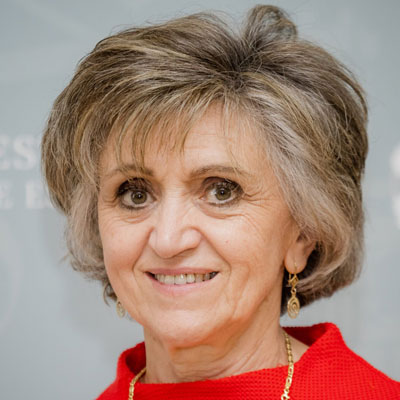
María Luisa Carcedo
Permanent member of the Spanish council of state.
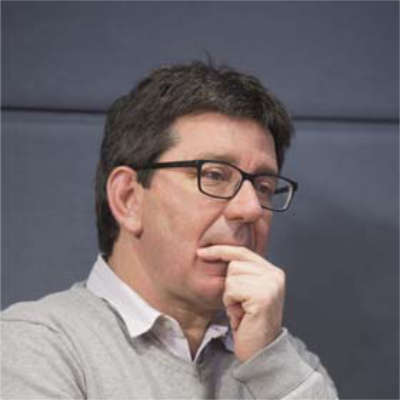
Joseba Zalakain Hernández
Director of the SIIS Documentation and Study Centre.

Fernando Consuegra Revuelta
Lecturer at the University of Deusto and General Coordinator of Sartu Taldea.

María Saiz Santos
Executeve Director of GEM Euskadi and President of the Basque Entrepeneurship Observatory.

Iñigo Calvo Sotomayor
Lecturer and researcher at the University of Deusto- Deusto Business School.

José Javier Ramos Salazar
Advisor to the Department of Labour and Employment for the restructuring of Lanbide.

Fernando Fantova Azcoaga
Head of Besaldi, the body assessing employment and inclusion policy in the Basque Country.

Mª José Aranguren Querejeta
Director General of Orkestra-Basque Institute of Competitiveness and Professor of Economics at the University of Deusto.

Iñigo Arteche Hernández
Cheif Executive Officier of Ikertalde.
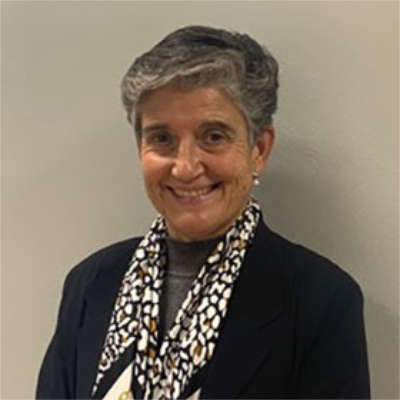
Sara de la Rica Goiricelaya
Professor of Economics at the University of the Basque Country and Director of the ISEAK Foundation.

Francisco Pedraza Moreno
General Director of Lanbide.

Arantza López González
Advisor to the Departament of Labour and Employment.

Enrique Ramos Vispo
Director of Employment and Inclusion.

Alfonso Gurpegui Ruiz
Vice-minister of Employment and Inclusion.
Organised by the Basque Government work and employment department, the 7th Employment Congress is to be held on 24th October at the Palacio Europa in Álava.
The Palacio Europa, in the heart of the city, has a green front, a pioneer in energy efficiency, as well as being extremely well-connected to major road and rail links. It can also be reached on foot from most of the hotels in the city.
HOW TO GET HERE:
On foot: see maps
By tram: Vitoria-Gasteiz trains and timetables / Web
By bus: Bus tickets and timetables in Movelia app / Web
By car: Car parks in Vitoria-Gasteiz / Web
Organisational Secretariat:

e-mail: congresodeempleo-te@euskadi.eus
Telephone: (+34) 946 123 007
You can register for the VII Employment Congress 2024 by clicking on the following button:

